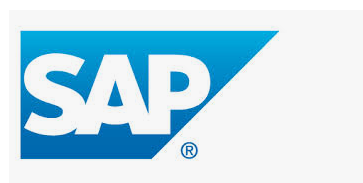 Technology and engineering dominate BrandZ™’s Most Valuable German Brands ranking
Technology and engineering dominate BrandZ™’s Most Valuable German Brands ranking
Despite being the most valuable BrandZ ranking in Europe,Germany’s Top 50 still needs to work harder to create emotional bonds with consumers
Hamburg – Technology company SAP continues to thrive in the global technology market as it retained the top spot in the BrandZ™ Top 50 Most Valuable German Brands ranking released today by WPP and Kantar.
SAP topped the ranking with a rise of 4% in brand value to $50.9 billion, while Deutsche Telekom held firm in second place ($41.2 billion). Car brands BMW and Mercedes-Benz took the third and fourth spots with brand values of $25.2 billion and $23.4 billion respectively, with logistics giant DHL ($18.5 billion) completing the top five.
The second annual BrandZ Germany ranking and report, which tracks and anticipates the evolving environment for brands, and charts the changing values of the country’s biggest brands, underlines the country’s role as the economic engine of Europe.
With a year-on-year rise of 11% in total brand value, the BrandZ Top 50 German brands are now worth a cumulative $341 billion, making the German Top 50 the most valuable BrandZ ranking in Europe, and the third-most valuable ranking globally, behind the China ($638.4 billion) and US ($3.2 trillion) Top 50s.
One of the building blocks for this success has been innovation. BrandZ global data shows that brands perceived as innovative grow seven times faster than other brands, and Germany’s Top 50 brands are perceived by consumers as highly innovative, taking the joint top position in Europe on this score alongside the Netherlands with an index of 108, where 100 is the average brand. The most innovative German brand is car rental giant Sixt (No. 42, $1.4 billion), which indexes 122 on this measure.
However, many of Germany’s global success stories are struggling to be loved by consumers in their home market – a measure of the emotional connection that ‘nudges’ consumers towards a purchase or choice even when a brand charges more. Only DHL and Lufthansa (No. 30, $2.3 billion) rank highly among brands in Germany, with non-German brands such as Google, Amazon, Ikea, Samsung and Facebook all receiving more affection from German consumers.
BrandZ research on the emotional and personality characteristics of brands in Germany shows that, on average, consumers perceive German brands as reliable with excellent customer service, but that they are less likely to forge a deep, emotional connection with them, or see them as kind, fun, brave or playful compared to non-German brands.

This feeling is most extreme among the most valuable brands in the ranking, with a four-point year-on-year fall in average Love scores across the whole ranking but a seven-point fall among the top 10.
David Roth, WPP said: “Many of Germany’s most valuable brands need to focus on building stronger emotional engagement with consumers and embrace greater creativity – which consumers have identified as areas to improve on. Despite already being huge global success stories, strengthening that personal connection could help deliver even further growth.”
One area of impressive growth is among the digital and digitally-led brands, such as digital-focused retailers Zalando, a new entry at No. 21 ($3.1 billion) and Otto, up 17% at No. 48 ($1.1 billion).
Another brand that has successfully put digital at the heart of its offer is travel agency AIDA (No. 47, $1.2 billion), which specialises in cruises and has successfully differentiated its offer in the age of online travel bookings. Travel operator TUI (No. 38, $1.6 billion) is also becoming more digitally focused, improving and delivering better services and recently taking a stake in Düsseldorf-based software company Peakwork.
Bernd Buechner, Managing Director at Kantar Germany said: “To address the low levels of Love they inspire among consumers, German brands would do well to start by thinking about trust. There’s a strong correlation between those brands that people trust, and the ones they fall in love with. Love matters not just because every brand wants to be loved, but because it can keep a brand in good favour with consumers in times when it’s not launching new products and innovations.”
Key trends highlighted in the BrandZ Germany Top 50 study include:
Continental is the most valuable newcomer: best known for car tyres, it is the highest-ranking new arrival, worth more than $8 billion and making its BrandZ debut in 13th place. Alongside Continental, the laundry detergent Persil (No. 35, $1.9 billion) is among 14 new brands to make the Top 50. Other newcomers include car rental giant Sixt (No. 42), fabric softener brand Lenor (No. 44, $1.4 billion) the frozen food delivery service Bofrost (No. 43, $1.4 billion) and travel agency AIDA (No. 47.
Tech brands must remember to be human: despite being a high-tech market, there’s reluctance to leap into the future with mobile payments and bot-led customer service. Cash remains the favourite way to pay, and levels of enthusiasm for mobile-only payment and online-only service models are lower than global averages. Technology is both exciting and a little frightening and more than half of Germans worry about getting left behind by the pace of change.
Take a stand: Companies and brands are expected to take a position on important issues, and consumers increasingly seek out those that have a point of view on the things that matter to them. Over half of Germans now say they like brands that take a stand – a significant jump in the past year. Social improvement, the environment, and responsible sourcing and supply chains are hot areas of focus.
Moving on up: Germany has risen to third place in the world on the annual global “Best Countries” ranking, developed in part by WPP’s Y&R BAV Group. The country has climbed above the UK thanks to a strong reputation for openness, high standards of education and its political influence internationally. Germany is ranked first for entrepreneurship out of 80 countries, followed by Japan, the US, the UK and Switzerland.


